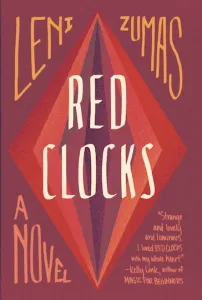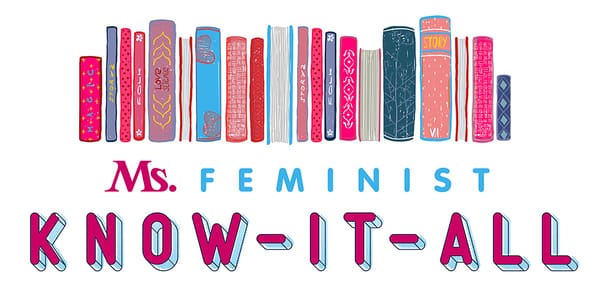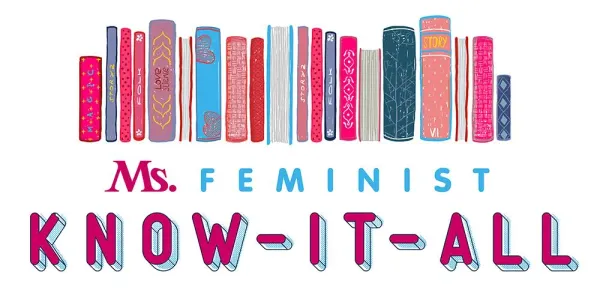Resist or regret? A review of Leni Zumas' Red Clocks
A review of Leni Zumas' RED CLOCKS from my 2018 blog.

This review originally appeared on my blog on Jan. 27, 2018. It's been lightly edited.
What do a polar explorer, a teenage girl, an aging teacher and writer, an unfulfilled wife and mother, and an eccentric healer have in common? A lot, surprisingly enough. Their intertwining experiences are calculatingly uncovered in Red Clocks, the third book by Leni Zumas.
I say “calculatingly” because the uncovering of the relationships felt just as deliberate as the development of the individual characters themselves. On both counts, I was puzzled at first, trying to figure out what these seemingly disparate characters have to do with one another and what story Zumas was trying to tell through them. But it didn’t take long before all the pieces fell into place to make a mosaic of women’s lives that was poignant and honest. Zumas is unafraid to shine a light on the imperfections and complexities of women’s inner voices and relationships.
Zumas masterfully switches voices among the four main characters, who are referred to in chapter headings as The Daughter, The Biographer, The Wife, and The Mender. I appreciated the statement Zumas makes by referring to them by these labels, as so often, women are relegated to simple characterizations that do not represent the depth and fullness of our lives.
Zumas is so adept at identifying her characters' unique voices that the reader is taken inside their thoughts, privy to their secrets, and bears witness to the repetitive and often destructive tapes that most women have playing incessantly inside their heads. The characters really come to life, and more than once or twice, they reminded me of my own inner critic, especially The Biographer.
The Biographer is a single woman trying desperately to get pregnant before a new law goes into place that will outlaw single people becoming parents. A teacher by day, she is also writing a biography of an Arctic explorer whose story was almost lost to history. The imagery of ice and glacial bergs ran concurrently through The Biographer’s story as if to indicate frozen qualities within her: her infertility, her solitude, and her methods of dealing with both. The Biographer copes with hardships with a dry wit that is at once deferential and yet serrated with disappointed observance of the ways of the unjust world in which she lives. (In my head, I picture her as Susie Myerson, played by the amazing Alex Borstein, who is the friend-manager of Midge Maisel in the hilarious series The Marvelous Mrs. Maisel. Which really doesn’t matter to this review but I had to share anyway.)
The Biographer comes to the aid of The Daughter, Mattie, who also suffers at the hands of the new Conservative Christian laws being passed. This time, it is the strict Personhood Amendment that impugns women’s sexual and reproductive decisions and dictates the arrest of those who seek to have an abortion. It’s an unlikely pairing that works; Zumas seems to enjoy challenging her readers with scenarios that may seem unlikely but that are, at times, terrifyingly closer than we may like to think.
One of the biggest criticisms I had of Red Clocks was its whiteness, and by this, I mean the broadest definition of whiteness-as-norm. The only character of color that is brought to our attention is Mattie’s former best friend, Yasmine. In an interview with Deirdre Sugiuchi in Electric Lit, Zumas discussed the intentionality of telling Yasmine’s story through The Daughter: “It was important to me to frame Mattie’s racial identity, more than Yasmine’s, as the site of conflict and unease. In this novel and beyond, I want my work to face the trouble of whiteness: how it’s been constructed, how its power is maintained, how we could imagine dismantling that power.” In this way, Zumas is writing and challenging what she knows: whiteness. While I appreciate this, I would’ve loved more development of this storyline or more interrogation of racial aspects in the Red Clocks future, because you know that as bad as white women would have it, women of color would have it worse. While fairly compared to A Handmaid’s Tale, Red Clocks would have helped the genre evolve by exploring themes of misogyny and white supremacy even more head-on and in-depth.
One of the real strengths of the book is the way in which Zumas captures the repetition and monotony of women’s everyday lives that exist concurrently with dynamic challenges and life-changing decisions. I felt the urgency each character faced throughout the book. By presenting characters of various ages centered on the main themes of reproduction and agency, Zumas encourages the reader to reflect upon how women’s priorities and decisions change over time and circumstance, how women regularly make intentional and informed choices about their bodies, and how the lack of agency has devastating effects on their lives. Fears of being forgotten or never discovered, of not loving or being loved, of being misunderstood and mistreated, of being found out, as well as the fear of regret are all real concerns, and Zumas is masterful at weaving the characters, their multiple dimensions and their individual yet interlocking voices into a story that is captivating and thought-provoking.
In the end, I found Red Clocks a call to action.
“They started talking about this thing called the Personhood Amendment, which for years has been a fringe idea, a farce.”
This is how these things can happen, right? We think that the threat will never actualize, and we become complacent. We stop being shocked, we don’t take the threats seriously, we stop fighting, and we stop supporting one another. Red Clocks may be a work of fiction, but its messages hit much too close to home to ignore. While each of us is stronger than we think, we are even stronger together. Red Clocks gives us a glimpse into what the near future could be like if we don’t stand together and resist the forces that attempt to disenfranchise and diminish us.
Find Leni Zumas online at https://www.lenizumas.com/ and on Twitter @lenizumas.
For further reading:
- https://www.nytimes.com/2018/01/22/books/review/red-clocks-leni-zumas.html
- http://www.refinery29.com/2018/01/188954/red-clocks-dystopian-novel-leni-zumas-interview
- https://electricliterature.com/on-dismantling-the-power-of-white-antifeminist-america-27e8d008f1be
- https://www.bitchmedia.org/article/red-clocks-review
- http://www.powells.com/post/interviews/powells-interview-leni-zumas-author-of-red-clocks
- https://www.nytimes.com/2018/01/22/books/review/red-clocks-leni-zumas.html
- https://www.npr.org/2018/01/13/577434136/reproductive-freedom-lies-just-outside-the-u-s-border-in-red-clocks

Title: Red Clocks: A Novel
Author: Leni Zumas
Publisher: Little Brown and Company
Pages: 368
Publication Date: January 16, 2018
My Rating: Highly recommended
Disclosures: I received an ebook from the publisher in exchange for my honest review; thanks, Little Brown and Company. This post contains affiliate links; please support independent booksellers!




